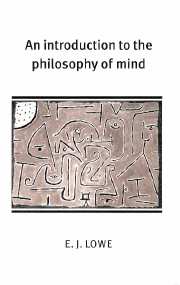Book contents
8 - Human rationality and artificial intelligence
Published online by Cambridge University Press: 05 June 2012
Summary
Our supposed rationality is one of the most prized possessions of human beings and is often alleged to be what distinguishes us most clearly from the rest of animal creation. In the previous chapter we saw, indeed, that there appear to be close links between having a capacity for conceptual thinking, being able to express one's thoughts in language, and having an ability to engage in processes of reasoning. Even chimpanzees, the cleverest of non-human primates, seem at best to have severely restricted powers of practical reasoning and display no sign at all of engaging in the kind of theoretical reasoning which is the hallmark of human achievement in the sciences. However, the traditional idea that rationality is the exclusive preserve of human beings has recently come under pressure from two quite different quarters, even setting aside claims made on behalf of the reasoning abilities of non-human animals. On the one hand, the information technology revolution has led to ambitious pronouncements by researchers in the field of artificial intelligence, some of whom maintain that suitably programmed computers can literally be said to engage in processes of thought and reasoning. On the other hand, ironically enough, some empirical psychologists have begun to challenge our own human pretensions to be able to think rationally. We are thus left contemplating the strange proposition that machines of our own devising may soon be deemed more rational than their human creators.
- Type
- Chapter
- Information
- An Introduction to the Philosophy of Mind , pp. 193 - 229Publisher: Cambridge University PressPrint publication year: 2000



